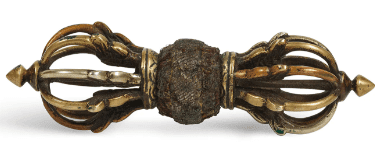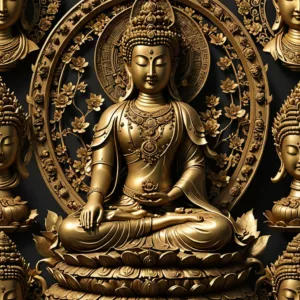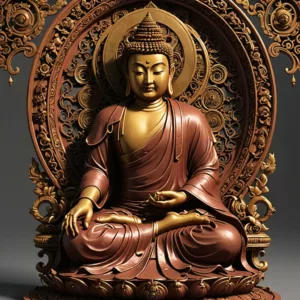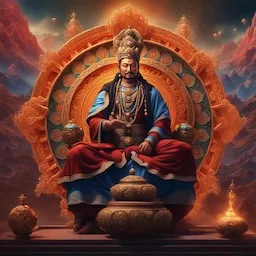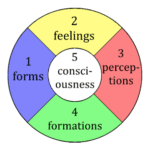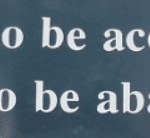6 Paramitas Series

The 6 paramitas (perfection of virtues) of the Mahayana path are
- Generosity
- Discipline
- Patience
- Exertion
- Meditation
- Wisdom
These are natively existent virtues the bodhisattva brings forth, increases and eventually perfects through activity and meditation.
Paramita means ‘other shore.’ It implies a sense of crossing over from one state – relative, confused, unstable – to a superior state – absolute, knowing and clear, stable.
I enjoy the challenge of generosity. Not being wealthy, I find small ways to enact it when and where I can. One of the best ways we can do it mental offering. This generates merit and it is easy to do without attachment because the offerings are not physically real. We can imagine entire universes of exactly what beings need for happiness and offer it to them. I suggest this. It feels good and it is karmically very helpful.
Table of Contents
Dana Paramita description
Generosity is the virtue that produces peace
Buddhist Meal Chant
The perfection of giving – generosity, of course, is the willingness and especially the desire to give. Generosity classically comes in 3 types
- Material Generosity
- Courage
- Dharma
Material Generosity
Dana paramita includes food, money, houses, cars, books, your time and expertise, and presents of all sorts. Anything can be offered. The point of this giving is to overcome grasping at material things. Our attachments hold us back. We should give without attachment. We solidify existence and seek happiness by owning and grasping objects. They cannot, however, provide any real happiness or any lasting happiness.
Giving them away helps us to overcome that. It also makes others happy, at least for a time, so it generates merit for us, if we do it in the spirit of dharma. Along this line, it is a failing of the bodhisattva to refuse the gifts of others. It makes people feel bad. It also denies them the opportunity to develop merit. You should graciously accept the gift even if you don’t want. You can pass it on later if you wish.
Mipham Rinpoche’s western attendants were taking donations from poor people in Tibet. He had to tell his attendants to not collect the money themselves but to allow the people to offer directly to him. ‘It’s very important to them to offer the money directly to me.’ Tibetans have a different concept than we do. For them, dana paramita is practiced to a representative of the dharma, a guru. So making that connection means a lot to them and to other cultures, more so than our own.
How to meditate like a yogi
and enter profound samadhi
Courage
The second dana paramita is courage, or fearlessness. Fear is a root emotion. Most aggression is based on fear. Fear of being wrong, being robbed, sickness, death, shame, or conflict. Aggression is a common response to fear. So giving people confidence and courage in themselves, in their own basic being so they can face difficult circumstances helps a lot. Showing them they don’t need to be constantly anxious about death, being mistaken, looking foolish, being alone, children being harmed and so on. These fears aren’t helpful.
Giving people that sense of courage is considered the second type of generosity and is superior to the first. That does not mean material giving is unimportant, of course.
Dharma Teaching
Giving people the Buddha’s teachings, a Dharmic perspective, or putting them on the path of liberation is the greatest style of dana paramita. With material possessions, they have temporary happiness. With courage, they have the chance to live life free of the most constraining emotion that exists. With Dharma, you help them exit the round of suffering altogether.
Dana is a cornerstone virtue, necessary for the other paramitas. We have to be willing to surrender our attachment to things. If we cannot do so, we cannot receive anything such as dharma. Those attachments, those desires and longings and holding on – to material reality, to fear, to smaller aspects of our life, to identity, to grasping the little goodies – those things interfere with our ability to connect with a greater and vaster reality.
It is not phenomena that are the problem, Naropa. It is your attachment to them.
Tilopa
Attachment fills our mind and becomes something interferes with seeing reality. If we are attached to an object, that means we take the object to be real at some level. If we take it to be real, then we cannot perceive its unreality, its non-realness. It’s emptiness is hidden from us.
Therefore, generosity and letting go, surrendering attachment to material objects is a fundamental prerequisite for truly traveling the path of enlightenment. One of the means to train someone who has very little generosity, according to Buddha, is to simply pass a piece of fruit from one hand to the other. Giving it back and forth.
One of the keys to generosity is to habituate it. Don’t be super-generous once a year, then forget the rest of the time. Instead, develop the habit of continually giving out. Whenever, you have the opportunity to be generous, you don’t give away everything. Then you wouldn’t have anything else to give! Give away a bit here, and there, and keep doing so. Always be willing to give something, to not be so tight with money, possessions, food, or other resources. Share them.
Dana gives rise to merit, the fuel for walking the dharma path. In fact the first 4 paramitas all concern primarily accumulation of merit. This is informed and increased by meditation, which concerns merit and wisdom and the fifth, prajnaparamita, concerned with wisdom.
Being free in that way will free you, free your mind, from miserliness. Stinginess leads to the lower realms, the hungry ghost realms, where one can never get enough to satisfy.
Ultimate dana paramita
is utter non-attachment. Here, you have no concern for appearing generous, accumulating merit or any outcome in particular. You simply want to help people. If it does not help, then it makes no difference. You simply continue with your path of generosity.
Karmically, generosity creates abundance, wealth, and overcomes poverty in future lives. Give to receive, in essence.

Flow, the profound mental state, also called Peak Performance, can be attained with meditation and can be ‘triggered’ at will, with enough discipline. Guide to Flow Mastery will teach you how.
faq
What is the meaning of Dana Paramita?
The concept of Dana paramita is the perfection of generosity or transcendent generosity. It is the first of the 6 Paramitas or perfected virtues of the Buddha.
What are the 6 Buddhist paramitas?
The 6 Buddhist paramitas or perfections are: generosity, discipline, patience, exertion, meditation, and wisdom.
What does paramita mean in Sanskrit?
Paramita in Sanskrit means ‘perfection’ and refers to the virtues of the bodhisattvas in their ultimate form.
What are the 4 types of dana in Buddhism?
There are actually 3, not 4 types of dana in Buddhism: material possessions, courage, and truth. The last means the dharma, Buddha’s teachings.
What are the benefits of dana in Buddhism?
In Buddhism, the benefits of dana are release from the pain of grasping. As is said, generosity is the virtue that produces peace.
What is the difference between dharma and dana?
Dharma is truth or teachings. Dana is generosity or giving.
Why are the 6 paramitas important?
The 6 paramitas are important because they allow the bodhisattva to emulate the actions of the Buddha, thus moving in the direction of enlightenment.
Secrets of Meditation for Anxiety
Like millions of people, you may have suffered from anxiety for years. Meditation, yoga, peaceful music – it never works. It takes too long, and it’s not stable. Why? Because peace is treated as a cause for freedom, but it’s not – it’s the result. The cause to free yourself from anxiety is completely different.
Click now to Overcome Anxiety for good.
Conclusion to Paramita of Generosity
Generosity is the key to the entire path. It means letting go of many things. Cultivating the habit of generosity leads to a far greater contentment in life, to wealth in future lives and to vast merit necessary to travel the path of dharma.
This is the first in the 6 Paramita Series.

May all beings be happy
May all beings be peaceful
May all beings be safe
May all beings awaken to the light of their true nature
May all beings be free
